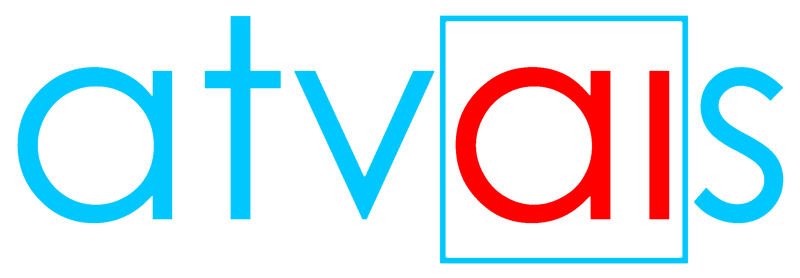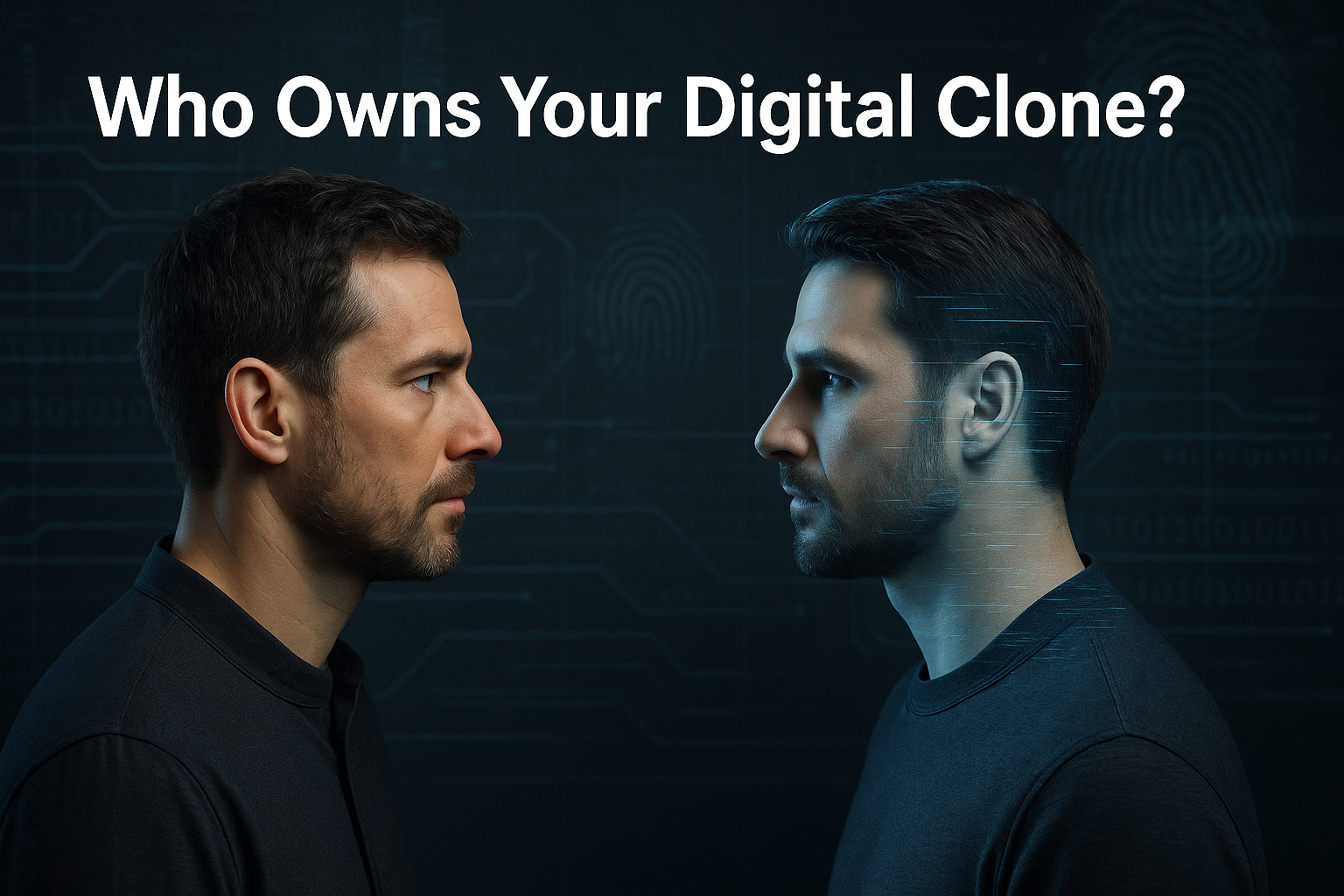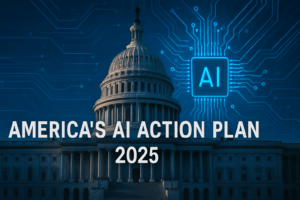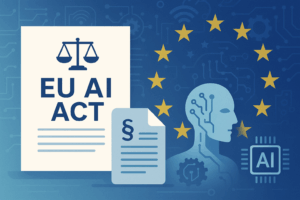From AI-generated avatars and synthetic voices to digital clones that look and sound just like real people, artificial intelligence is reshaping how we present ourselves, and this could threaten our AI persona rights. These digital entities—known as AI personas—are increasingly used in entertainment, customer service, and personal branding.
Whether it’s a virtual influencer posting daily updates or a customer support avatar speaking in a celebrity’s voice, the technology is both exciting and unnerving. As digital duplication becomes more realistic and accessible, one key question looms: What are the legal, privacy, and ethical implications of handing over your digital identity?
What Is an AI Persona and Why It’s Tempting
An AI persona is a digitally created version of a person, often generated using machine learning techniques such as deepfakes, voice synthesis, or avatar modeling. These personas can mimic your appearance, voice, or writing style, and are used across industries—from influencers creating scalable content to marketers personalizing messages at scale.
They are also gaining popularity in preserving memories of loved ones through digital twins and holograms. The appeal is easy to understand: AI personas promise round-the-clock presence, cost-effective production, and even digital immortality. For many, the convenience and allure of staying “forever online” is hard to resist.
Who Owns You in the Digital World?
As AI personas become more prevalent, questions of ownership and rights are becoming urgent. Who controls the use of your face, voice, and personality when digitized? In many jurisdictions, personality rights—also called publicity rights—are either weak or nonexistent.
There are significant legal gaps, especially across borders. For example, while California recognizes personality rights even after death, other regions do not offer similar protections. This creates legal ambiguity around posthumous digital clones, particularly in film and advertising.
High-profile cases have highlighted these concerns. Voice actors have voiced objections to unauthorized use of their voices in AI tools. Yet, without clear legislation, companies often operate in a legal gray zone, raising questions about the ethical limits of digital cloning.
Privacy and Data Protection
To create an AI clone, you usually need to provide extensive personal data. This includes biometric data like facial scans, voice samples, and sometimes even past messages or videos. Under laws such as the General Data Protection Regulation (GDPR), this constitutes personal—and often sensitive—data.
The legal principles of informed consent, data minimisation, and purpose limitation should apply. However, users often do not fully understand the scope of what they are agreeing to when using AI platforms. Data collected for one use may be repurposed, shared, or even sold.
There is also the threat of profiling, misuse of identity, and data breaches. Once your digital likeness is stored in a server, controlling its use becomes nearly impossible. This raises serious privacy risks that are difficult to reverse.
Once You Upload, What Are Your AI Persona Rights?
When users create AI personas through online services, they often agree to terms that give the company broad rights over the data. These licensing agreements can include clauses allowing adaptation, reuse, and commercialization of your likeness without further approval.
Revoking consent after the fact is rarely straightforward. In some cases, it may be impossible. As a result, users risk permanently giving up control over their digital identity. Without robust mechanisms for consent management, personal agency is significantly weakened in the AI ecosystem.
Who Is Responsible?
As the use of AI personas increases, so does the need for strong governance frameworks. Transparency, traceability, and human oversight are critical to ensuring ethical use. International guidelines like the OECD AI Principles, the EU AI Act, and UNESCO’s AI ethics framework stress these points.
These frameworks advocate for clear responsibility assignment and risk mitigation. Yet, when AI clones are misused—whether in fraud, defamation, or unauthorized commercial use—pinpointing liability can be difficult. Was it the creator, the platform, or the user?
Without legal structures that support traceability and enforcement, the accountability chain remains weak. This undermines trust and hampers the responsible deployment of AI personas. These are core themes in AI governance training. For those preparing for the IAPP AIGP exam, a structured course such as the AIGP Prep Suite 2025 Edition covers these issues in depth and helps build the foundational knowledge required to navigate this evolving landscape.
Cultural and Ethical Concerns
Legal compliance does not address all issues. The use of AI-generated personas raises deep cultural and ethical questions. Synthetic media can be used to manipulate public perception, spread disinformation, or even cause emotional harm by misrepresenting individuals.
Deepfakes are increasingly used in scams and political propaganda. Seeing yourself—or a loved one—used inappropriately can be deeply distressing. The commodification of identity not only reduces human dignity but may also erode trust in digital content more broadly.
Practical Recommendations for Users
To navigate this new terrain safely, users must take proactive steps. First, always read and understand the terms of service and licensing agreements before uploading any personal data.
Avoid sharing biometric data unless absolutely necessary. Choose platforms that comply with recognized data protection standards and are transparent about their practices. Stay informed about how your data may be reused, shared, or monetized. Consider whether creating an AI clone is necessary—or if other, less risky alternatives might suffice.
Think Twice Before You Digitally Duplicate Yourself
AI personas offer exciting and sometimes groundbreaking possibilities, especially in industries like entertainment, education, and customer service. But these opportunities come bundled with complex legal uncertainties, serious privacy risks, and ethical gray areas. Whether you’re preserving your legacy or building a virtual brand, you must remain critically aware of what you’re surrendering in return.
Once your digital identity is cloned, the ability to control its use may vanish. This is not just about your image—it’s about your autonomy, your data, and your future. Therefore, adopting a cautious, informed, and responsible approach to AI-generated personas is essential. As society catches up with the technology, stronger regulations, clearer protections, and user education must follow. Until then, think carefully before replicating yourself into the digital unknown.






